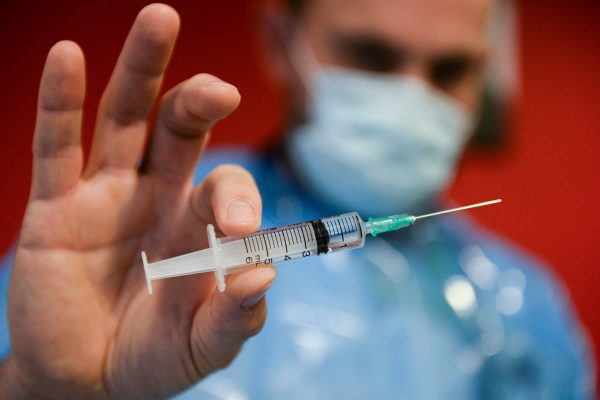New Coronavirus variant not a concern, says KU Professor
A Kingston University Immunology professor said that the newly-detected coronavirus variant in the UK should not be a worry to us, despite it being 70 per cent more transmissible.
The highly-infectious Covid-19 variant was first detected in parts of England in September, yet only attracted the world’s attention this month when two thirds of cases in London were a result of this new variant.
Dr Terry Gaymes, a senior lecturer in Haematology and Immunology at Kingston University, reiterated the government’s reassurances about the new variant being no more dangerous than the original virus but added that it could put a strain on the health services of the country.
“You shouldn’t be so worried about this new variant because it isn’t more dangerous than the previous Covid-19 virus, however, we’re going to have more people in hospitals now, which means that eventually we’re going to fill up all the NHS beds, meaning that all other operations and treatments will stop while concentrating on Covid-19,” said Dr Gaymes.

Photo: Dr Terry Gaymes from Kingston University explains via a Zoom call why the new variant is no more dangerous than the original virus. Credit: Alex Pivin[/caption]
The UK government has placed London and some areas in the Southeast and East of England into Tier 4, which is the highest level of alert in England, in an effort to stop this new variant from spreading. As a result, many British families did not get to celebrate Christmas with their families, something which the government had allowed at first.
Gaymes said: “We find that the original tiers weren’t effective enough to protect. I can’t say that there won’t be another full lockdown after Christmas. If levels don’t come down sufficiently enough, and we’re seeing hospital beds being taken up to full capacity we might have to introduce even stricter measures to make sure the levels of infections are coming down.”
The virus known as B.1.1.7 has been spreading rapidly, causing not only a concern for the UK government but other governments as well, as the variant has now been detected in multiple countries in Europe, as well as Australia, Canada, Singapore and Japan.
Due to its high infection rate, many people are now worried that the variant could potentially become deadlier, and the vaccines that have now been rolled out across the world deemed ineffective.

Photo: The Covid-19 vaccination programme has started across the world Mandatory Credit: Photo by Isopix/Shutterstock (11668731c)[/caption]
The university professor brushed this theory aside and said: “The virus needs us as a reservoir for it to keep on replicating, and if it wants to kill us then the virus will have no place to go. Viruses are known as soon as they mutate and evolve they become less dangerous, but they increase their infectivity rate.”
He went on to explain why the current vaccines’ efficacy will not be affected by the new variant.
“If there is a slight change to the spike protein there is enough response to the unchanged parts of the spike protein to carry out an effective immune response. As soon as the virus evolves, we will evolve our vaccines to keep up with the changes.”
The spike protein is what the virus uses as a key to unlock the doorway to our body’s cells, in order to replicate themselves and spread to other cells or individuals. The spike protein is also the basis of the current Covid-19 vaccines produced by Pfizer/BioNTech and Moderna as it instructs our immune system to make our own version of the spike protein, which then starts the process of protective antibody and T cell production.
Scientists across the world, including Dr Gaymes, believe we should be back to some kind of normality by this summer as long as people respect the rules put in place, and the vaccination program continues as planned.
The Immunology professor said: “I thought that by April-May we could be back to some kind of normality…500,000 people have been vaccinated already, by this spring it will get up to 10-20 million people. We’ll get to a stage where we’ll have enough people vaccinated and get back to what we call normal.”

0 Comments Add a Comment?